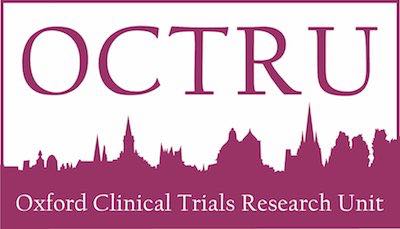What will happen if I take part?
INITIAL ASSESSMENT
If you are happy to take part in this study, a researcher will ask you some simple questions and check your medical history to confirm that you are eligible. If you are eligible, you will be asked to sign and date a consent form for the study. We will then ask you some questions about your medical history and to check you are not already taking any drugs (medications) that Adalimumab should not be taken with and some questions about your health. These questions should take you no more than 10 minutes to answer.
We are also asking people to donate some blood samples. These samples will be used to help researchers further understand the impact that COVID-19 and any drugs you might be given are having on your body. We will take from you up to 30mls of blood (this is the equivalent of 2 tablespoons). Throughout the study blood samples are taken 4 times – so in total up to 8 tablespoons of blood will be taken if you agree.
To help keep your information confidential, your sample and any information recorded about you in this study will be ‘de-identified’ and assigned a study code. However, your DNA is unique to you so it can never be completely anonymous. You should note that commercial organisations might be involved in analysis of the samples. The samples will be stored at your local hospital and during or at the end of the study the samples will be transported to the University of Oxford. Your de-identified samples will then be used mainly by local researchers (if applicable), but ethically approved research projects may take place in hospitals, universities, non-profit institutions or commercial laboratories worldwide.
TREATMENT ALLOCATION
You will then be randomly allocated to one of the study groups by a computer, i.e. allocation is by chance. You will have an equal chance (50%) of being allocated to either group, like the toss of a coin. Neither you or the study team can decide which treatment group you will be allocated to.The computer will put you either into:
- The Adalimumab group – Where you will receive usual care and a dose of Adalimumab. We are testing two dose levels so you will receive either 2 or 4 injections (given at the same time in either your tummy (abdomen) or the top of your leg (thigh). If you still have symptoms on day 14 the doctor will decide if you should have another dose (1 or 2 injections).
- The current standard care group – where you will receive usual care but we will not give you any Adalimumab.
For all participants in the study the ‘standard’ care will be determined by your doctor based on their assessment of your condition and the latest advice on treatment for COVID-19. If you take part in this study you will not be able to receive any other ‘investigational’ i.e. unproven treatments for COVID-19 but you can receive any that are recommended by the NHS.
AFTER RANDOMISATION (TREATMENT ALLOCATION)
After being randomised and receiving the Adalimumab (if you are randomised to that group) you will be monitored by your usual healthcare team and the ‘Hospital at Home’ team.
For all patients, a member of the trial research team (who will be someone from the Hospital at Home team) will visit you specifically for the purposes of the trial on days 7, 14 and 28. We would also like to call you on days 3, 10, 17, 20, 24, 60 and 120 to see how you are doing. We will ask you some questions about your symptoms, if you have been given any new drugs from your GP and give you the opportunity to ask questions. The call should take no more than 10 minutes to complete, however, the visits will take slightly longer as a machine will be put on your finger to find out what the oxygen levels are in your body and blood samples will be taken like on the first day.
We would also like to use a mobile phone app in this trial. The app has been made by a group of researchers from the NHS and the University of Oxford who have worked with industry professionals and together created a company called Sensyne. We will ask you or your carers to use the app for the first 14 days of being in the trial. The app will ask you questions about how you are feeling and any symptoms that you have. (Note: If you do not have a mobile phone or computer to access the app, or you do not feel comfortable or able to use the app – this will not exclude you from the trial. Potentially, someone where you live may access the app for you to enter data).
If you are admitted to hospital over the following 60 days, we will ask your permission to access your hospital medical notes for your stay in hospital. Members of the research team may then take the results of any clinical tests, x-rays and observations taken. There will be no additional tests requested by the research team.
RISK AND BENEFITS
We hope that the information from this trial will answer the question of whether Adalimumab is a drug that should be given to or not given to patients who are not in hospital who have tested positive for COVID-19. We cannot promise the study will help you directly, but the information we get has the potential to be of benefit to those who start to show COVID-19 symptoms.
People sometimes feel uncomfortable answering certain questions about their health, or may be unable to answer. If you feel uncomfortable at any point, then you do not have to answer the questions.
Although Adalimumab has been widely used in people who are pregnant without evidence of harm to mother or baby, women who are pregnant will not be able to enter the study. If you are a women of child-bearing potential you will need to use effective contraception during the study and for 5 months afterwards.
Adalimumab like most drugs may cause side effects and it is important that you know about them. They are:
|
Side Effect |
Frequency |
|---|---|
|
Pain, swelling, redness or itchy skin where your injection was given. A mild nose, throat or sinus infection. A headache, rash or muscle or bone pains. Stomach pains, feeling or being sick. |
Very common (experienced by more than |
|
Infections, including a fever, chills, unusual sweating, feeling unwell or more tired than normal, diarrhoea, coughing up blood or mucus, shortness of breath, problems urinating, skin sores, wounds or muscle aches. Night sweats, swollen glands in the neck, armpits, groin or other areas, weight loss, changes to the skin, severe itchiness. Persistent fever, bruising, very easy bleeding. |
Uncommon (experienced by less than |
|
Severe allergic reactions (anaphylaxis). |
Uncommon (experienced by more than 1 in 1000 but fewer than 1 in 100 people taking it) |
There is a potential risk that treatment with adalimumab may allow hidden infections such as tuberculosis to reappear. You will be followed up for 4 months after the study to check for this. If, after the study, you develop a persistent cough or fever you should tell your doctor straight away.
Adalimumab may cause abnormalities of blood tests so you will be monitored during the study, including blood tests.
What happens at the end of the trial?
We will share the results with healthcare researchers and professionals to improve future COVID-19 patient care. Also, we will present them in research reports, at scientific conferences, and publish them in scientific journals.
The study results will also be publically available at https://avid-cc.octru.ox.ac.uk/ at the end of the study.
We will not include any data that could identify you in the results. If any of the funders of this research ask us to make the study data available for other researchers or to themselves, we will first make your information anonymous (i.e. we will take your name and other identifying details out) so that you cannot be identified.



